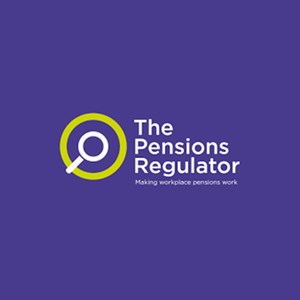We’re acutely aware of the strain COVID-19 is putting on savers, employers and pension schemes and we are working hard to adapt to the challenges, to provide clarity and to ease the burden.
Since the COVID-19 outbreak, The Pensions Regulator (TPR) has released new guidance to support trustees, administrators and employers, and protect savers throughout these challenging times.
Trustees and scheme managers
Key measures include giving more time for trustees to consider the scheme’s and employer’s situation. Trustees will be able to decide to delay concluding their valuation and establishing their deficit recovery plan if they need to, by up to three months, and we won’t take regulatory action in these instances.
We’ve also advised that Defined Benefit (DB) Trustees should be open to accommodate requests from the employer to reduce or suspend Deficit Recovery Contributions (DRCs) in line with the principles set out in our guidance.
Savers
The measures for trustees and employers work to provide support and flexibility to safeguard schemes so that savers are protected.
We want those paying into a workplace pension, and who have a long time to retirement, to understand that, historically, financial markets have recovered from shocks. The current volatility might have no impact on their ultimate retirement benefit.
Defined Contribution (DC) savers close to or considering retirement may have already seen their pension moved into investments less vulnerable to market volatility.
There may be concern about an employers’ ability to continue supporting a DB scheme, motivating savers to look to other options. We are doing all we can to support trustees in managing these risks and protecting benefits.
In line with protecting savers, we are also calling on scheme trustees to ensure they follow the right process if asked to make a transfer, ensuring people take appropriate advice from Financial Conduct Authority (FCA) regulated adviser.
Our position remains that savers with DB pensions should understand it’s unlikely transferring into a different type of arrangement will be in their best longterm interests.
Market volatility and uncertainty over employment may prompt people to look again at their short and long-term household finances.
While worries about immediate priorities are understandable, they should not lead to knee-jerk decisions. We urge savers to stop and think before, for example, making a decision to transfer their pension to another arrangement, which they may later regret.
Scams
A major concern is the possibility of scammers taking advantage of peoples’ worries to persuade them into transferring funds into bogus investments.
Research suggests one in four people take less than 24 hours to make a decision on their pension, money that can take a lifetime to build.
We’ve renewed our focus on ensuring savers can spot a scam by encouraging them to visit the FCA’s ScamSmart COVID-19 guidance and check its warning list before making hasty decisions.
We’ve seen that in times of uncertainty, scammers come out to prey on their victims. Fears about COVID-19 and rapidly moving markets are likely to present them with the confidence they can ravage savers’ pensions. They might do this through the offer of pension reviews, or the carrot of superior returns. It’s important that savers know the potential dangers of an unsolicited or unregulated transfer and investment advice, and are not persuaded to follow it.
We might be physically separated from each other, but we don’t have to be isolated. Advice is still available to savers and we must make sure that the message isn’t lost in the panic.
Employers
To help employers, we are working closely with pension providers and asking them to be as flexible as possible so that employers have more time to pay automatic enrolment (AE) contributions.
We expect employers to continue to meet their AE duties towards their staff including paying the correct contributions. The government’s Coronavirus Job Retention Scheme means employers will be able to claim back the costs of their AE minimum employer contribution for furloughed staff. This will help them meet their AE responsibilities. And, in order to reduce the burden on employers further, we are temporarily limiting some of our enforcement activity.
In the longer term, we expect any and all missed contributions to be made up in full so staff do not miss out, and have asked providers to continue reporting to us so we have accurate records.
Our guidance and range of measures to support savers, employers and people who run pension schemes will be regularly reviewed and updated as we continue to respond to events as they unfold. There will be more challenges ahead, but we will continue to focus on supporting pensions schemes so that savers are protected as we weather this unprecedented storm.
Notes/Sources
This article was featured in Pensions Aspects magazine May 2020 edition.
Last update: 19 January 2021
You may also like:



